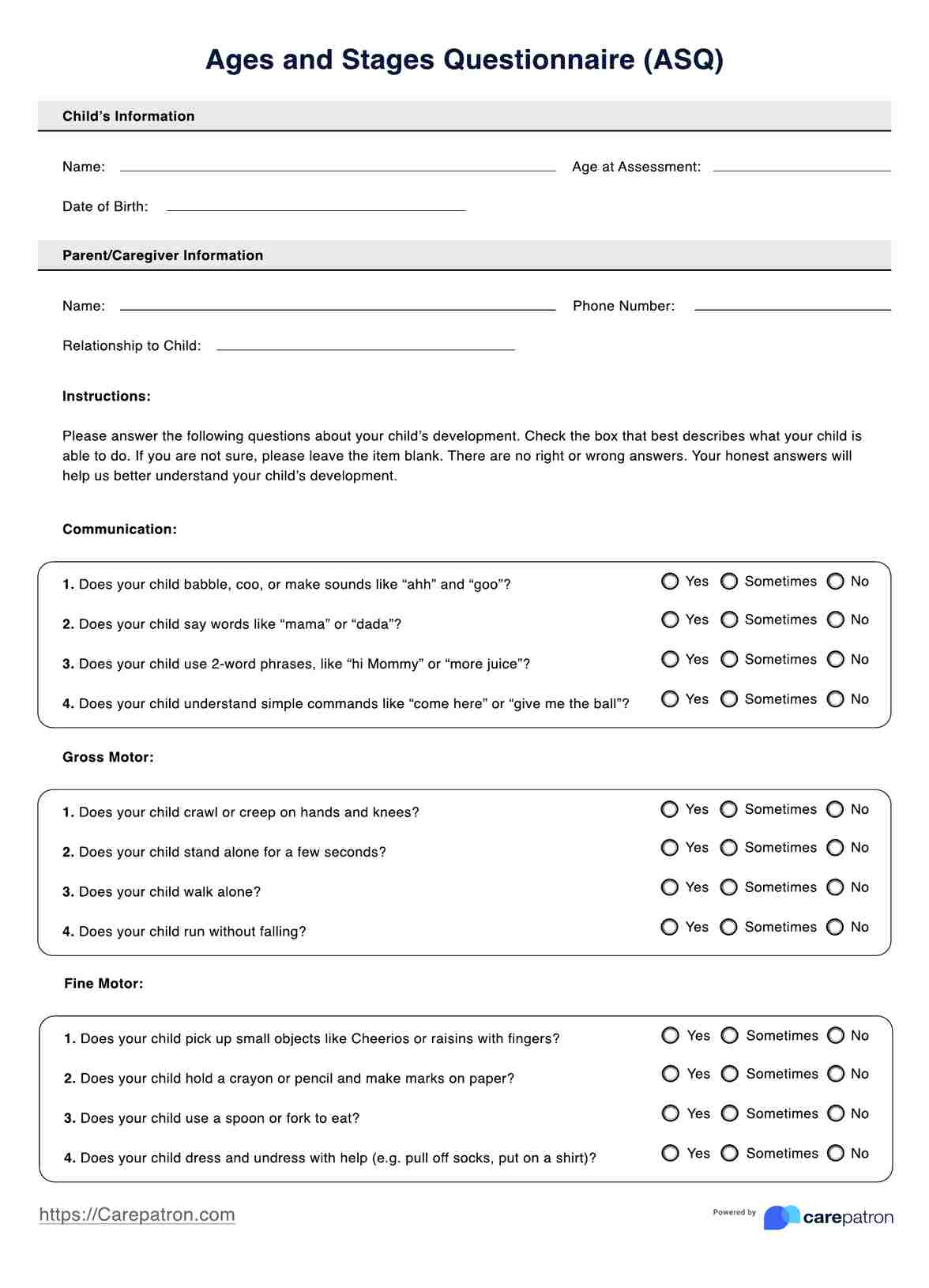Administering the Ages and Stages Questionnaire (ASQ) typically takes 15 to 20 minutes, but the time can vary depending on the child's age and the questionnaire version used. Parents or caregivers usually complete the questionnaire, but additional time for healthcare providers to review and discuss the responses may be needed.

Ages And Stages Questionnaire
Ages and Stages Questionnaire (ASQ) is a developmental screening tool used to evaluate a child's development. Download this PDF to learn more.
Ages And Stages Questionnaire Template
Commonly asked questions
The Ages and Stages Questionnaire (ASQ) is widely regarded as a reliable and valid tool for developmental screening. It has been extensively researched and validated for accuracy in identifying children at risk for developmental delays. However, like any screening tool, it should be part of a comprehensive assessment process, including clinical judgment and possibly further diagnostic evaluations.
A child scoring low on the Ages and Stages Questionnaire (ASQ) indicates a potential risk for developmental delay. In such cases, healthcare providers recommend further evaluation to better understand the child's needs. This may involve more in-depth developmental assessments, referrals to specialists, or initiating early intervention services to address the areas of concern. The goal is to provide timely support to enhance the child's development and overall well-being.
EHR and practice management software
Get started for free
*No credit card required
Free
$0/usd
Unlimited clients
Telehealth
1GB of storage
Client portal text
Automated billing and online payments











